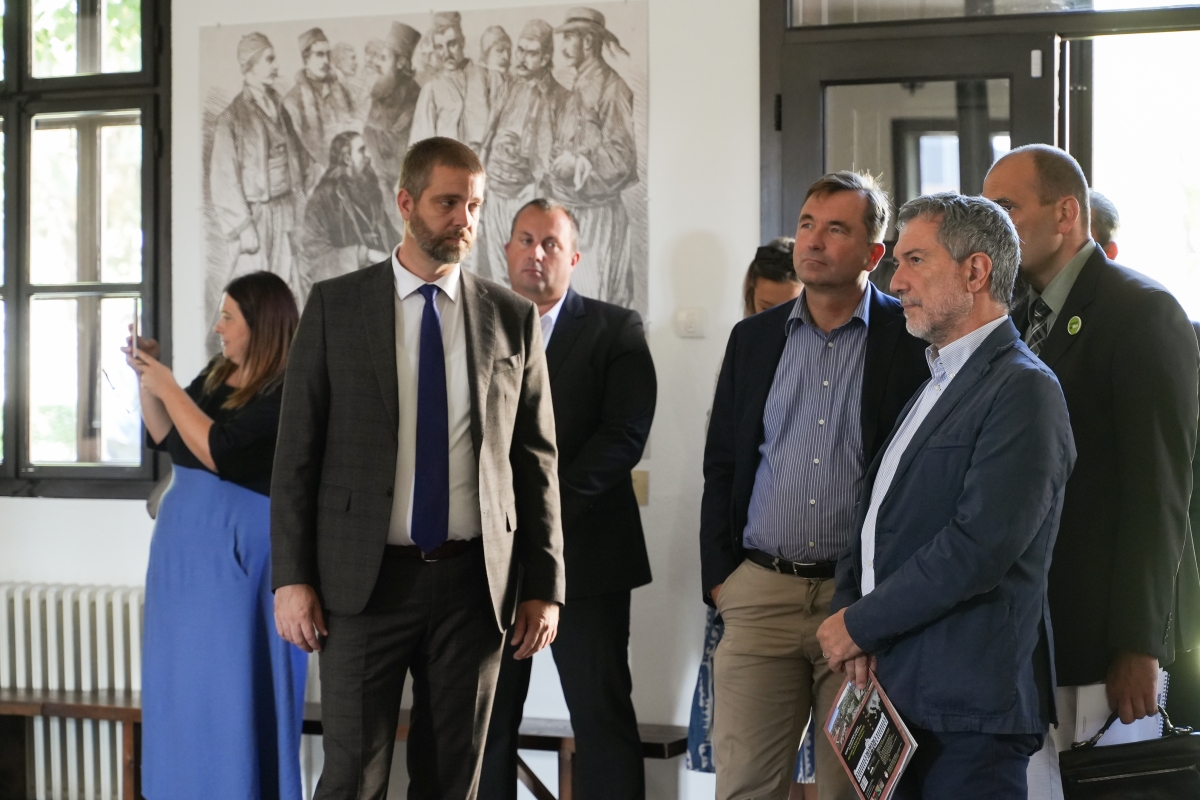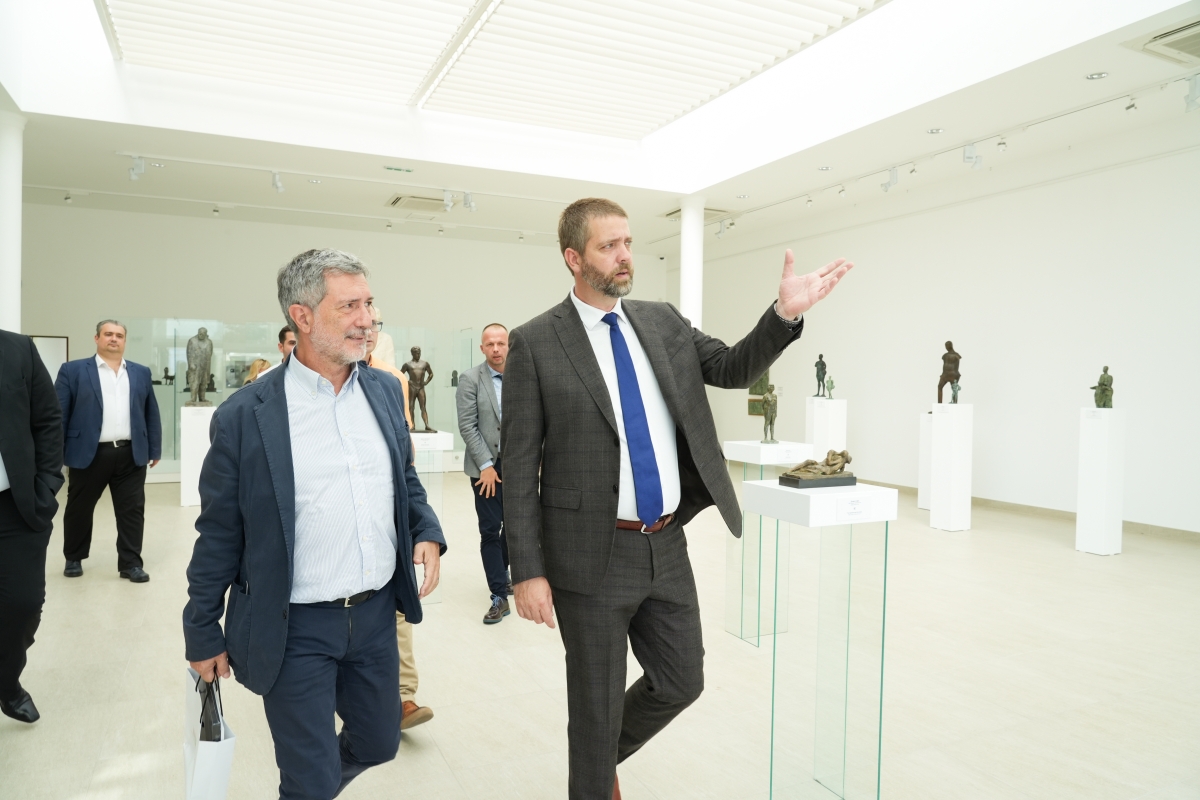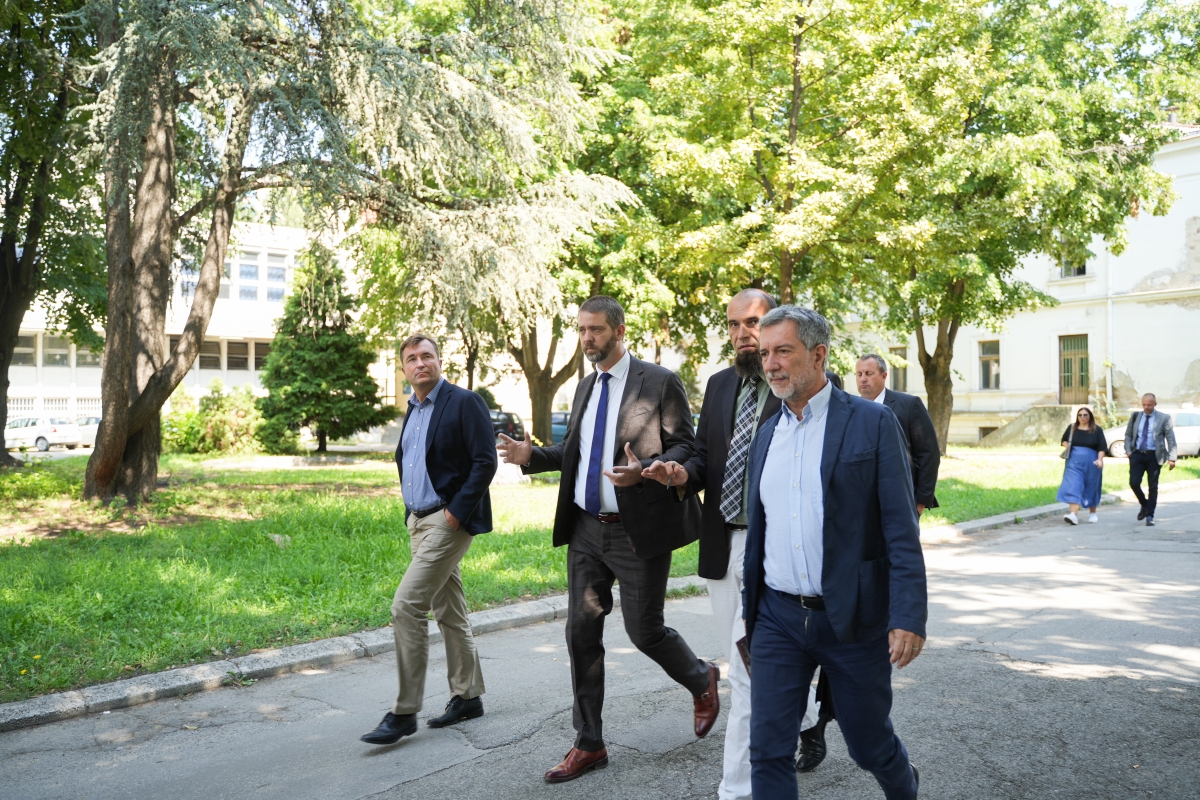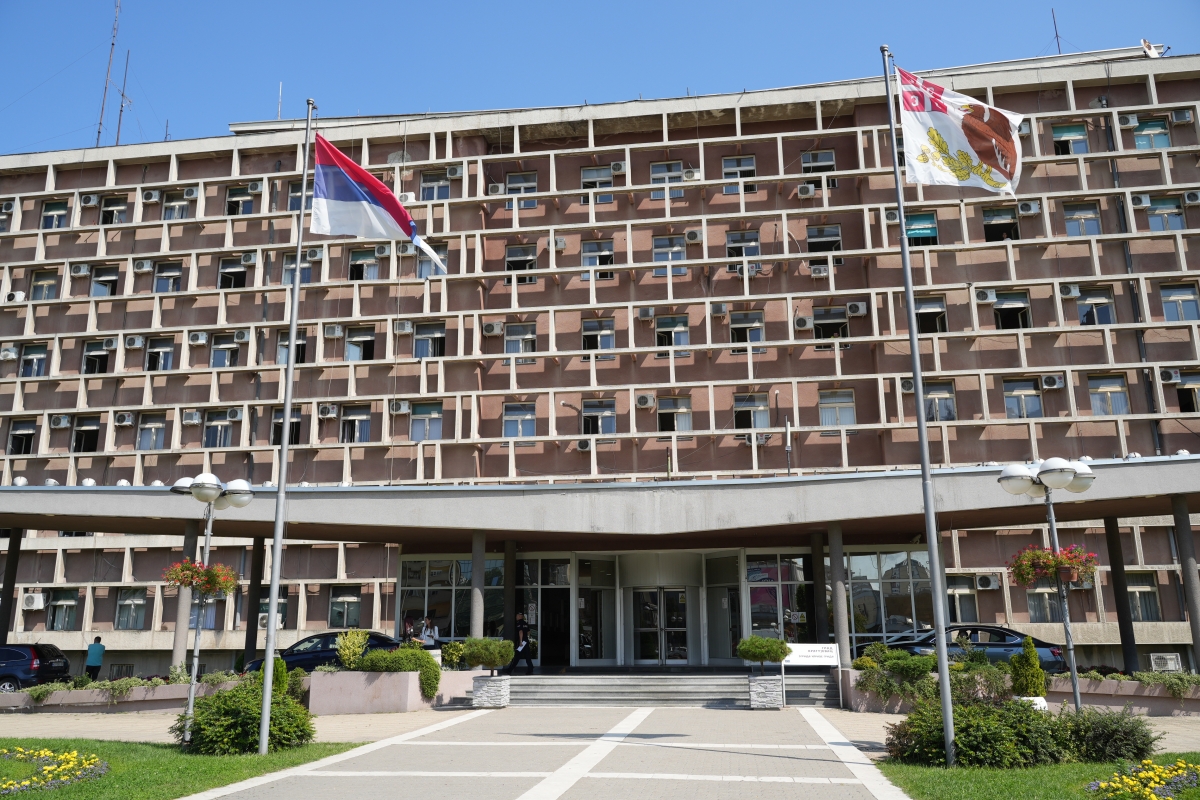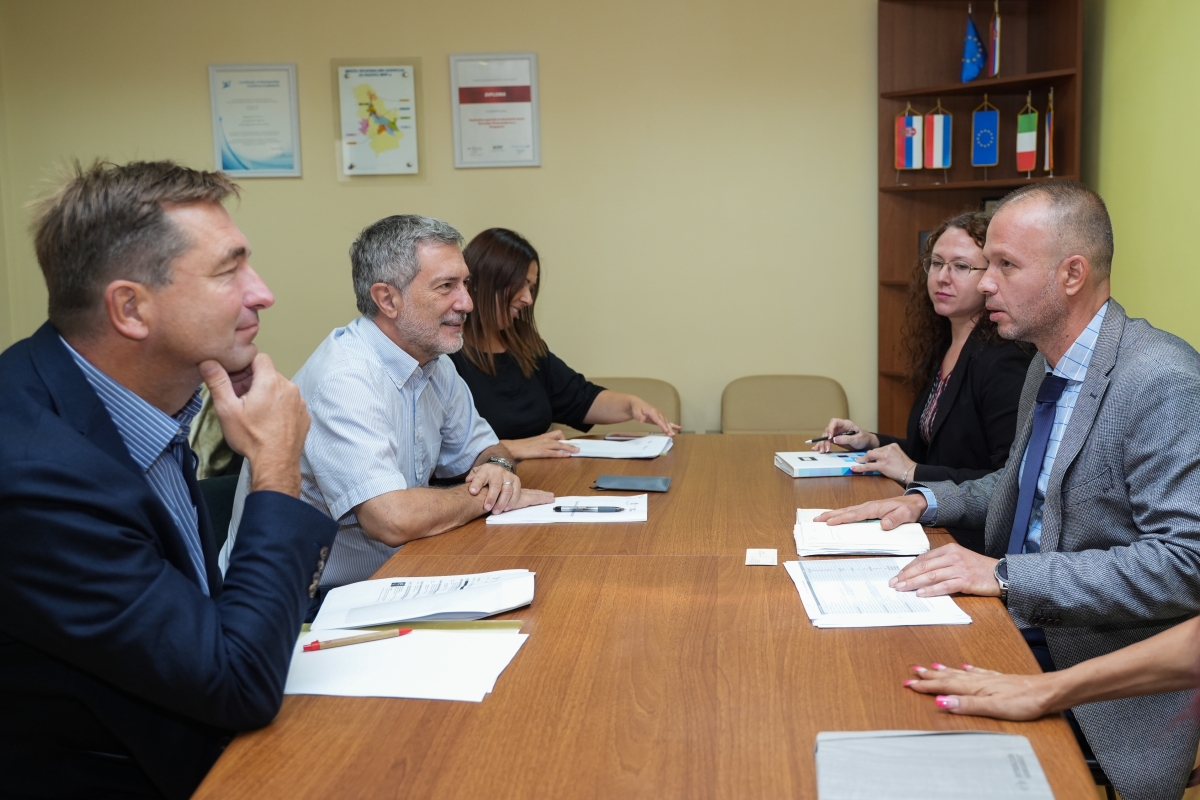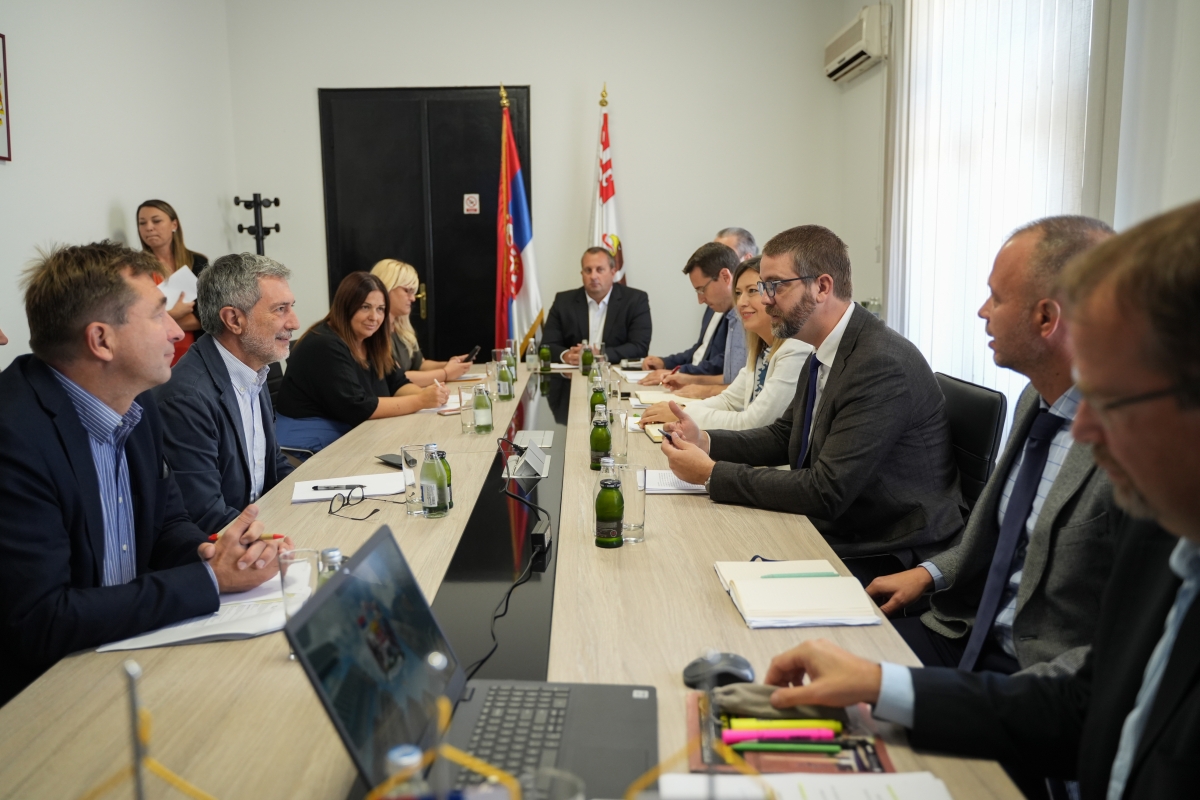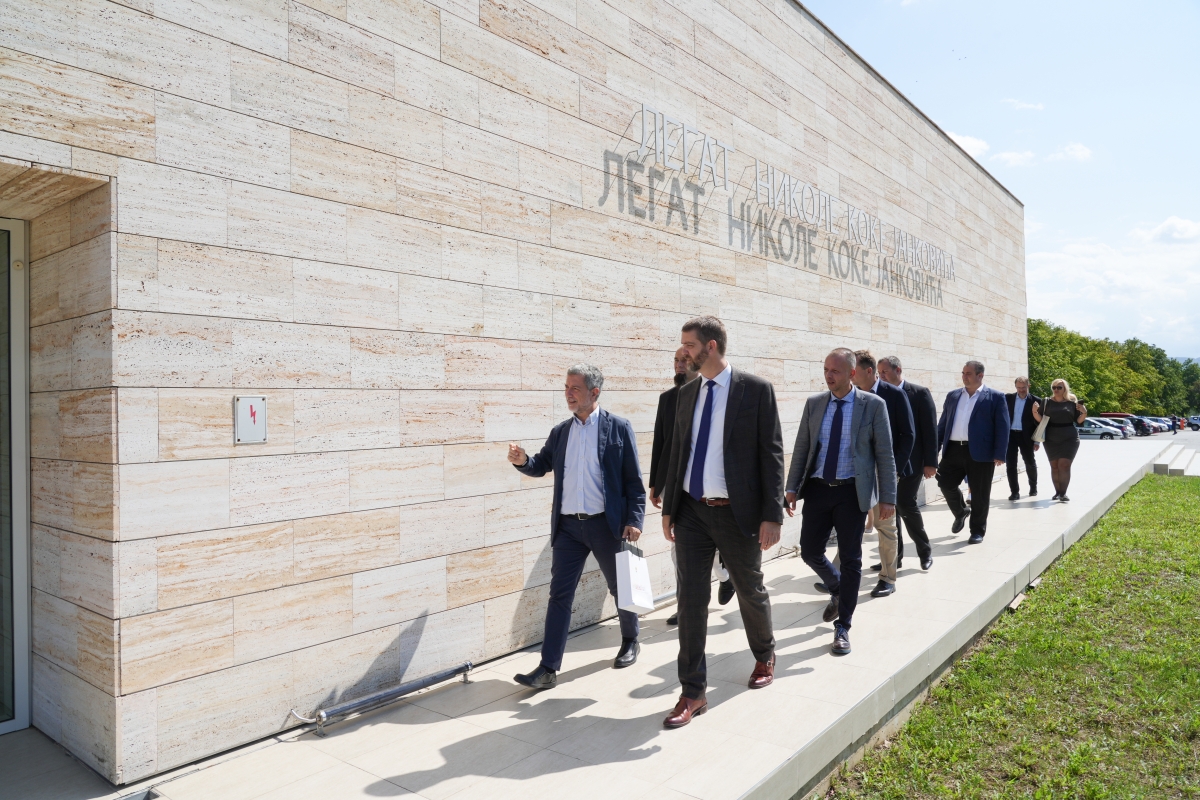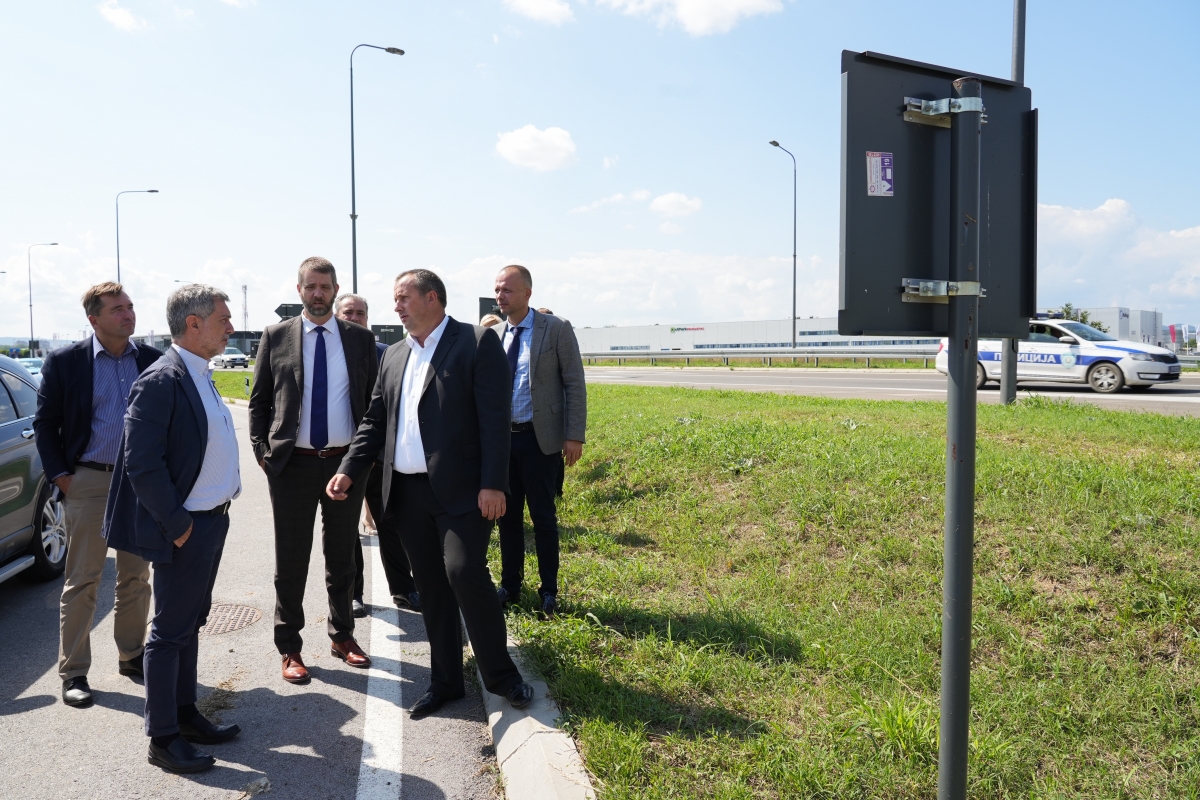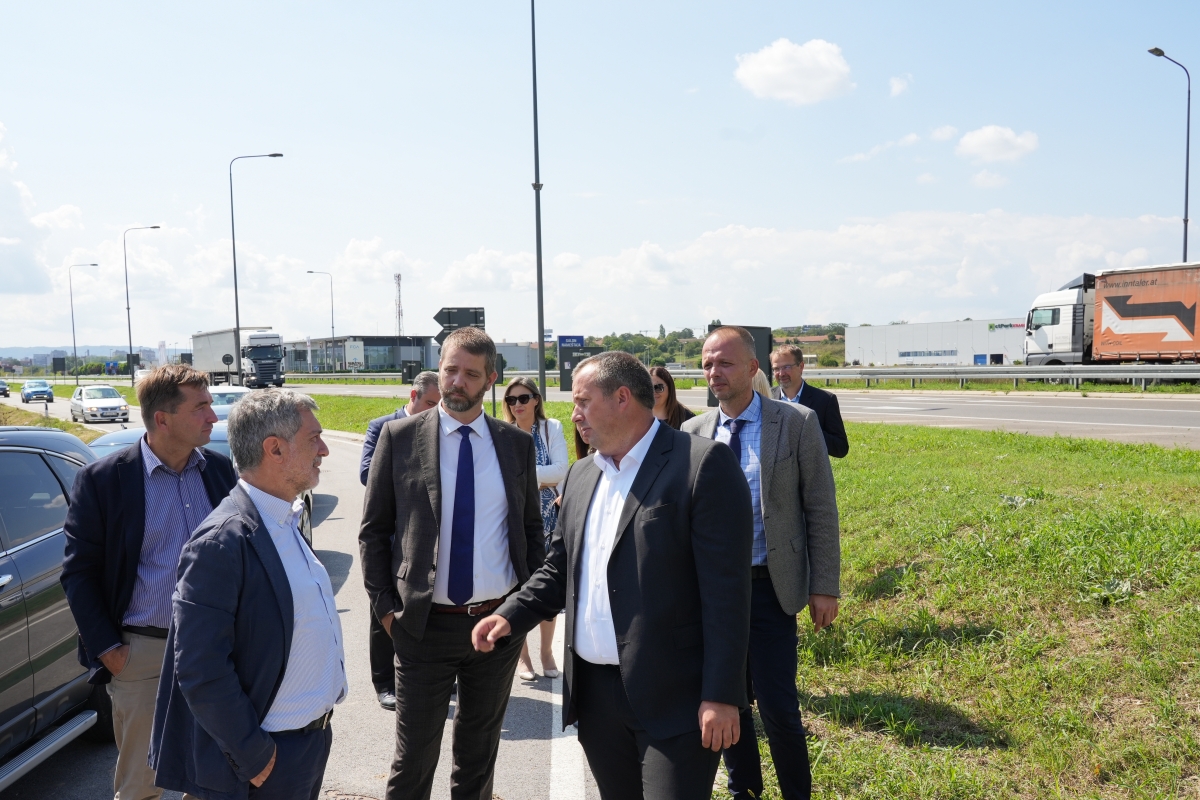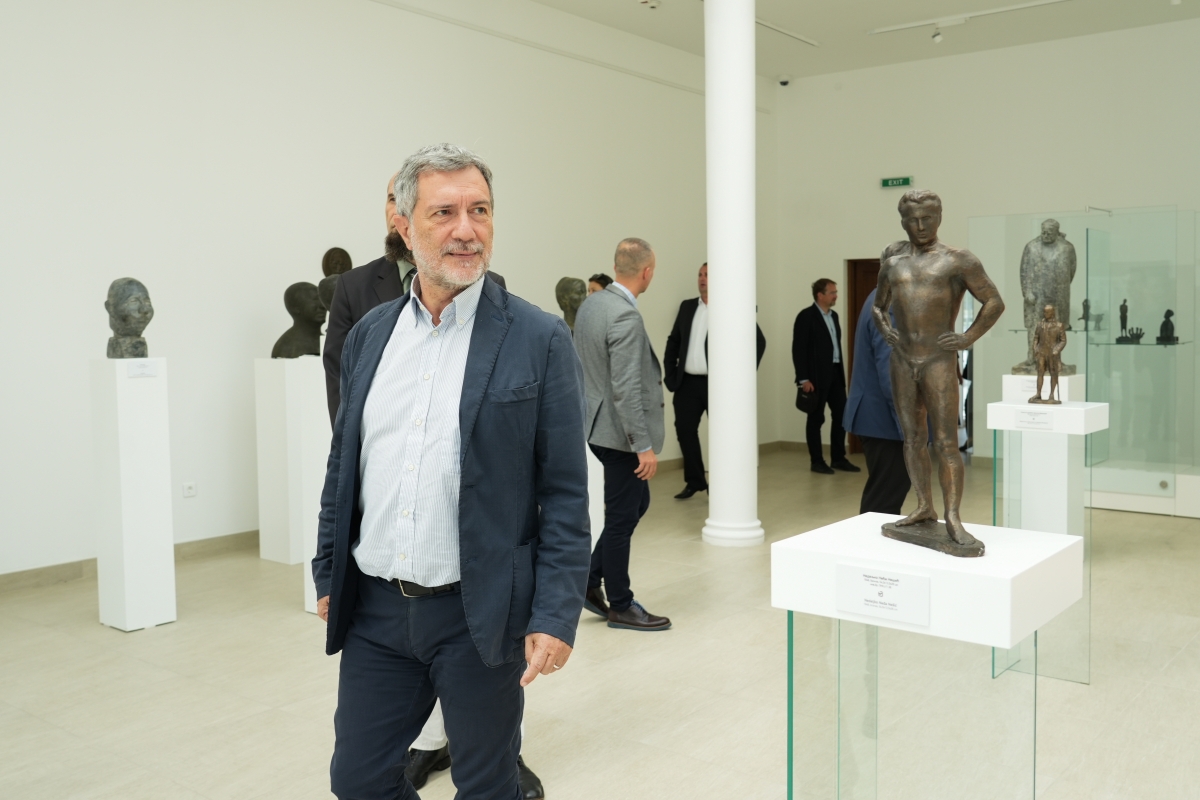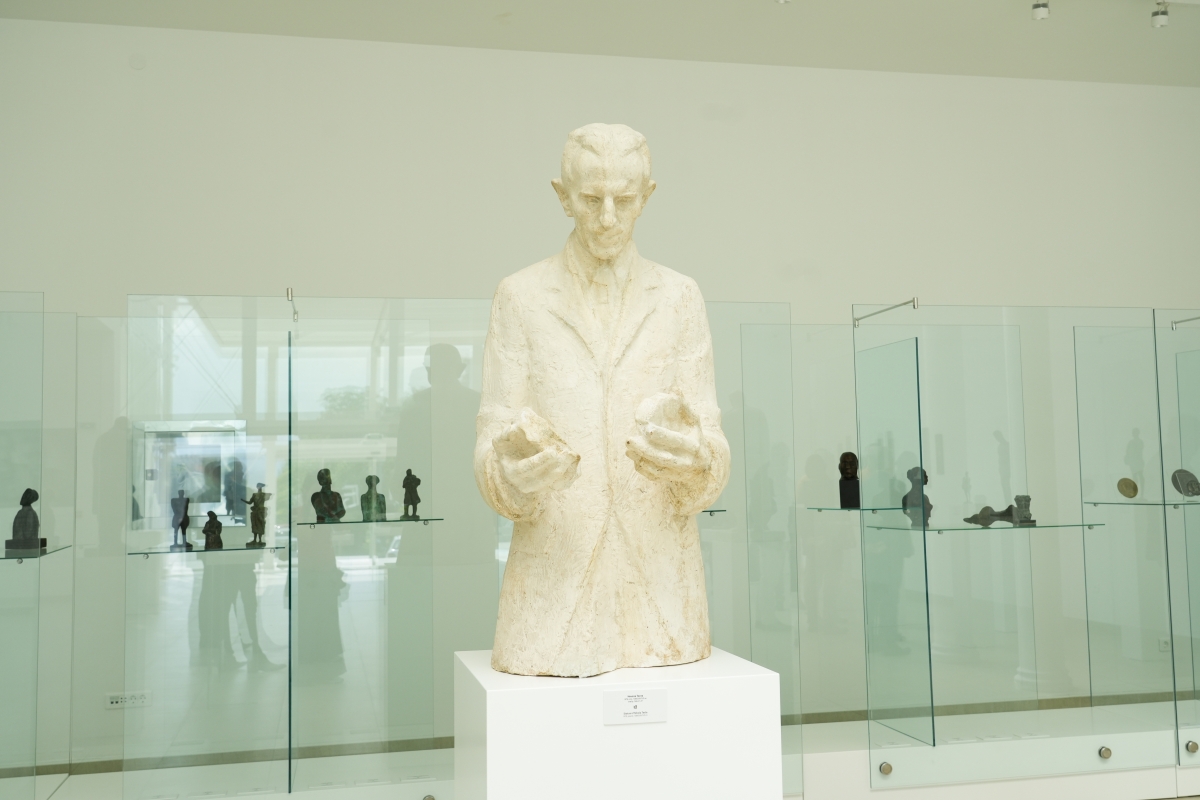Kragujevac, 6 September 2022
EU investments in Kragujevac
"The EU funds that have been implemented so far in Kragujevac are important, but they must be significantly increased in the future. That is why we will further improve the dialogue with the City and the possibilities for the implementation of projects, but we will also help in the process of European integration, which to a large extent takes place precisely at the local level", said the Head of Cooperation of the Delegation of the European Union in Serbia, Nikola Bertolini, during his visit to Military-Technical institute, which is among the priority projects that the city of Kragujevac is preparing and planning to implement in the coming period.
As Bertolini assessed, in many European cities such spaces of cultural and historical importance have been renovated, revitalized thus contributing to the quality of people's lives.
"Kragujevac has great potential for young people in terms of the opportunity to study, but also opportunities for further investments and innovations. We talked about current and future projects as we see Kragujevac as an important place in the broader context of the development of the entire region," concluded Bertolini.
"The strategic position of Kragujevac is that we not only want to join the European Union, but that we are already, geographically, but also in all other ways, historically and culturally, a part of the EU, and therefore, all the EU support to become part of a greater family is more than welcome", said the Mayor of Kragujevac, Nikola Dašić.
As he noted, the City has more than 20 prepared projects, and the Military Technical Institute or the Prince's Arsenal represents the future and characterization of the City of Kragujevac, whose revitalization is being worked on, while expressing hope that the EU will also provide support.
Bertolini and Klaucke together with the representatives of the City visited the business infrastructure project, which, with EU funds of over 630,000 Euros, included the construction of communal infrastructure and roads that connected old and new locations in the industrial zone and thus provided better conditions for investments.
In Kragujevac, representatives of the EU Delegation also visited the building of the Legacy of Academician Nikola Koka Janković, which construction was supported jointly by Kragujevac and the European Investment Bank (EIB) with 680,000 Euros in order to preserve and promote the cultural heritage of Serbia as part of the European cultural heritage.
In Kragujevac, representatives of the EU Delegation also met with representatives of the Regional Agency for Economic Development of Šumadija and Pomoravlja, which, with the support of the EU, implements projects aimed at improving competitiveness and medium-sized enterprises, as well as at the development of tourism
